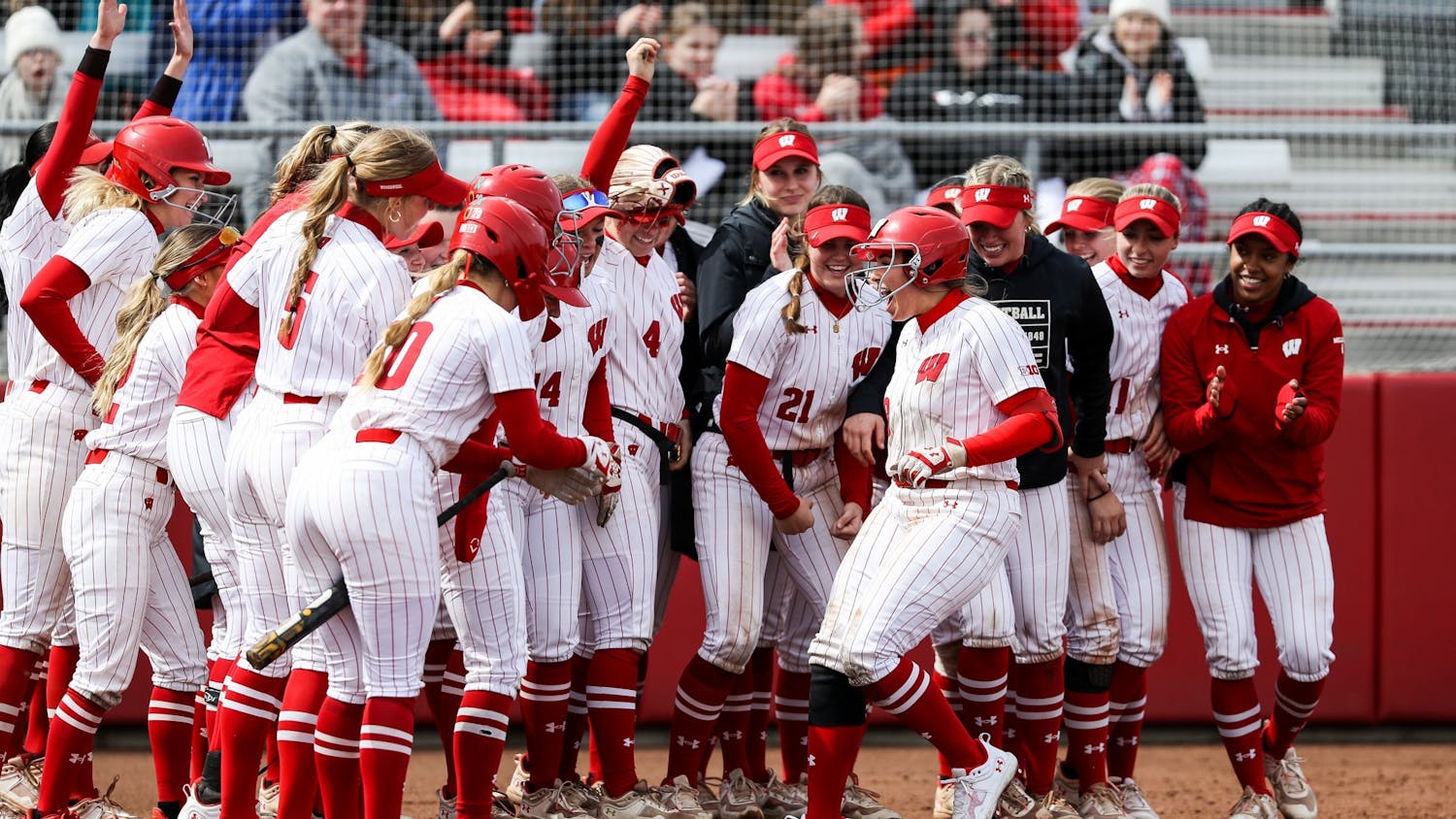More often than not, it’s the referees, the people on the field dressed like zebras, who make game-altering calls in sports. Their in-game decisions can have shockwave effects on the outcome of a game, but they don’t have to talk to the media about them, like players and coaches do.
Post-game interviews give fans a perspective into the world of sports, where players and coaches alike face the scrutiny of the media. If there is an error in the game, they’ll hear it from the press and have to defend themselves.
The Badgers have found themselves at the short end of the referee stick recently.
Last season, the Wisconsin football team fought tooth and nail against No.1 Oregon on Nov. 16, but the referees made some interesting calls that benefitted the Ducks late in the game.
The Badgers led the Ducks 13-6 entering the fourth quarter, but with seven minutes left, the officials called a perplexing chop block against the Badgers offense. This penalty cost Wisconsin a first down, forcing a third-and-19. After this call, the Ducks scored 10 unanswered points to win the game 16-13.
Another egregious example is the 2024 Big Ten Tournament semifinal match-up against Purdue.
Purdue center Zach Edey was unquestionably an unstoppable force throughout his time with the Boilermakers. At 7 feet, 4 inches, he was a nightmare for opponents. Edey was the beneficiary of several foul calls. He was almost single-handedly responsible for fouling out Tyler Wahl, Steven Crowl and Nolan Winter.
Wahl’s fifth foul was controversial among viewers. Wahl appeared to be firmly planted and tried to draw a charge against the driving Edey. Instead, Wahl fouled out of the game.
The Badgers pulled off the upset in overtime, 76-75, but there was still uproar following the game. The Boilermakers shot an absurd 32 free throws — Edey alone had 19 compared to the Badgers’ nine.
There was a clear discrepancy between the foul calls of both teams, and there is zero reason why the referees should not have answered questions about these calls. Three Badgers fouled out to Purdue’s one, and Wisconsin had 28 fouls called on them to the Boilermakers’ 17. Asking the officials about the Wahl foul against Edey and why there were so many fouls called in favor of Edey should not be out of the cards.
But a crown jewel moment for referees not explaining themselves came during the 2018 NFC Championship. The Los Angeles Rams and the New Orleans Saints were tied at 20 with under two minutes to play in the game. The Saints had a third-and-10 at Los Angeles’ 13-yard line. Saints quarterback Drew Brees aired out a pass to receiver Tommylee Lewis, but Rams cornerback Nickell Robey-Coleman blocked Lewis’ path to catching the ball from Brees, and it was fourth-and-10.
But the officials didn’t call a pass interference penalty on Robey-Coleman. This would’ve put New Orleans at first-and-goal at the Rams’ three-yard line, but more importantly, in a prime position to go to the Super Bowl. The Saints’ sideline was furious.
New Orleans settled for the field goal. On the following drive, the Rams got a field goal of their own and forced the game to overtime. In the end, the Rams kicked the game-winning field goal in overtime, and they were off to Super Bowl LIII.
The magnitude of calls and type of penalty displayed in cases like these are why referees should have a post-game press conference. The call hampered the Saints’ chance of going to the Super Bowl, but if the referee called a pass interference, New Orleans would have likely scored the go-ahead touchdown and chewed down the rest of the clock. The Rams would only have had a few seconds to get to the end zone rather than playing for the field goal to tie.
A pass interference penalty is a judgment call. It’s up to the opinion of the referee during the moment to determine if the penalty has occurred. Pass interference is also a non-reviewable call, so a coach cannot challenge whether or not there was a pass interference.
Bill Vinovich, the head referee for the 2018 NFC Championship, should have been at the liberty of the media following this game. Members of the press should have been able to ask what Vinovich saw on the play that led him not to call pass interference against Robey-Coleman.
In contrast, Saints head coach Sean Payton spoke to the media with a frustrated and upset tone, saying that “they blew the call.”
Press conferences allow fans a look into the thought processes of players and coaches, including why certain plays were called and the approach to situations in the game. The same standard should be applied to referees. The fans, players and coaches deserve to know why a referee made a certain decision.
Both professional and collegiate leagues should strongly consider having referees face the media. If players and coaches can be grilled by the press following a tough loss, a referee should have to undertake the same circumstances following a tough call.






